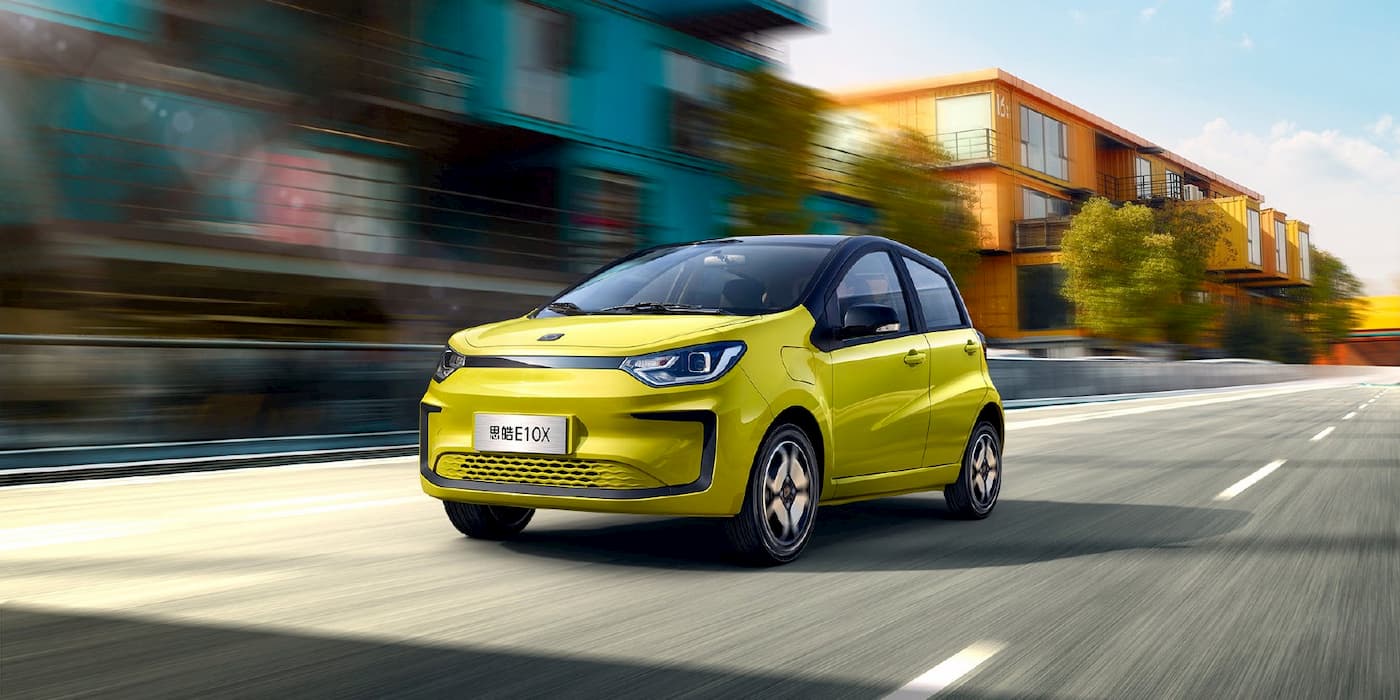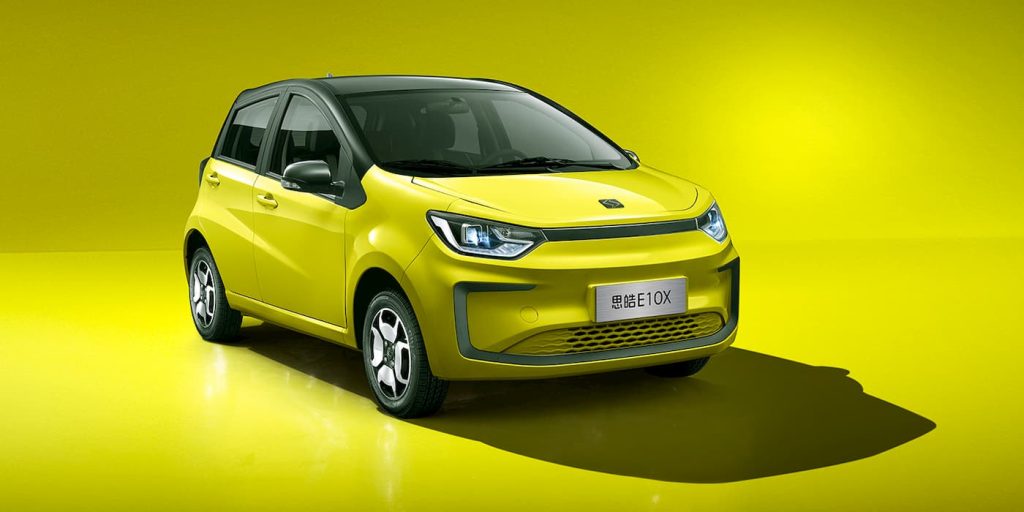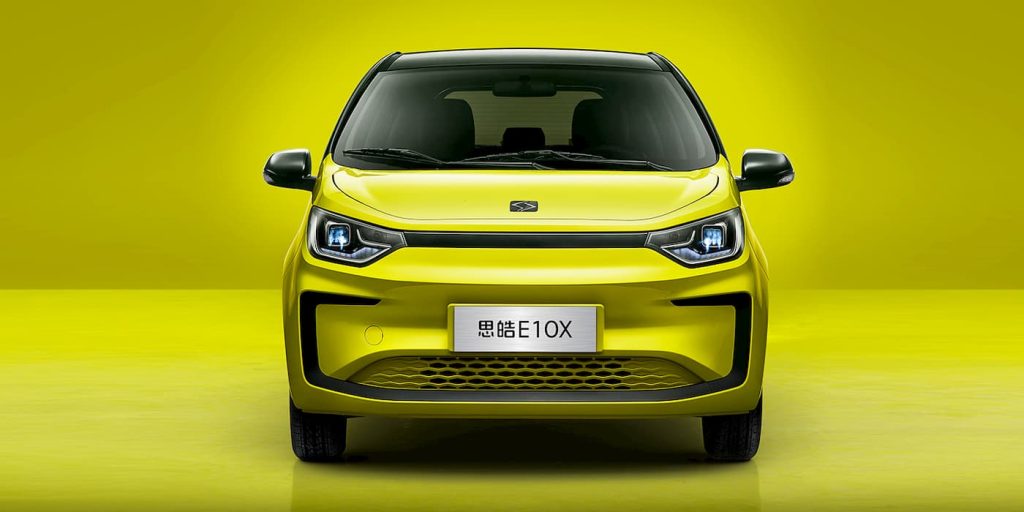
JAC Group’s Yiwei, a new EV brand in China backed by Volkswagen, debuted the first sodium-ion battery-powered electric car. The new JAC Yiwei EV rolled off the assembly line Wednesday.
Yiwei is a new EV maker under the JAC Group. It was established earlier this year. Volkswagen owns 50% of JAC’s parent company, the other 50% is state-owned.
Volkswagen invested 1 billion euros for a 50% stake in JAC Group in 2021. The German automaker also took full control of management of its existing EV joint venture with a 75% stake.
The new EV features sodium-ion cylindrical cells from HiNa Battery. The Beijing-based tech company is affiliated with the Institute of Physics of the Chinese Academy of Sciences.
It will use JAC’s UE module tech, a honey-comb battery structure. JAC’s UE is similar to BYD’s Blade battery, which is used in Toyota, Kia, and Ford EVs. It can also be compared to CATL’s CTP (cell-to-pack) technology.
Deliveries of the new sodium battery-powered Yiwei electric vehicle are expected to begin next month.

First sodium-ion battery-powered EV rolls out
JAC introduced the Yiwei 3, the first EV powered by sodium-ion battery at the Shanghai Auto Show in February. However, the model launched with an LFP battery with JAC promising a sodium-ion version was coming.
The automaker also revealed the sodium-ion battery powered Sehol E10X featuring 25 kWh capacity and 120 Wh/kg energy density. With 3C to 4C charging, the electric hatchback could recharge (10% – 80% in 20 mins).

Volkswagen transferred the Sehol brand to JAC in 2021. Earlier this year, JAC said all vehicles would wear either a JAC or Yiwei badge.
Although sodium-ion batteries have a lower energy density than lithium ion, they do offer several advantages. According to JAC, they have better low-temperature performance, charging speed, a longer lifespan, and are more durable over time.
Perhaps, most importantly, the batteries use cheaper raw materials, which can enable lower EV prices.
“Sodium-ion batteries will become an important battery type, complementary to LFP batteries, and a low-cost solution that promotes the popularization of mass electric vehicles to masses,” Chairman of Yiwei Tech, Xia Shunli said.
Source: CarNewsChina

lasuna over the counter – diarex tablets order himcolin for sale
cost besivance – cheap generic carbocysteine cheap sildamax for sale
buy cheap gabapentin – motrin 600mg cheap buy azulfidine pills
probalan price – oral probenecid 500 mg tegretol 400mg us
cost celecoxib 100mg – cheap flavoxate pill indocin over the counter
order mebeverine sale – buy etoricoxib 120mg pills buy pletal without prescription
voltaren drug – voltaren uk buy aspirin without prescription
rumalaya online order – how to get shallaki without a prescription buy generic amitriptyline over the counter
pyridostigmine 60mg price – cheap imuran 50mg buy imuran 25mg pills
buy ozobax pills – buy feldene paypal generic piroxicam 20 mg
diclofenac generic – buy cheap generic diclofenac cheap generic nimotop
how to buy cyproheptadine – periactin 4 mg without prescription zanaflex for sale
buy meloxicam 7.5mg without prescription – buy ketorolac no prescription purchase toradol without prescription
omnicef cheap – buy generic cefdinir 300mg cleocin for sale online
order generic trihexyphenidyl – trihexyphenidyl pill order voltaren gel cheap
prednisone 5mg cheap – order generic prednisone cheap permethrin
order permethrin cream – cost permethrin purchase retin for sale
buy generic betnovate for sale – buy cheap adapalene order benoquin online
order metronidazole sale – flagyl over the counter cenforce 100mg oral
buy amoxiclav for sale – buy synthroid 150mcg generic cost levothroid
cleocin 300mg ca – cost cleocin 300mg indocin canada
cheap cozaar – cozaar 25mg cheap keflex price
crotamiton cream – where to buy bactroban ointment without a prescription aczone generic
buy generic provigil 200mg – promethazine 25mg pills cheap meloset 3mg
how to get zyban without a prescription – order ayurslim generic cheap shuddha guggulu online
capecitabine 500mg generic – buy naproxen 250mg pills danazol over the counter
buy prometrium generic – order clomiphene pill buy fertomid tablets
fosamax 35mg cheap – buy alendronate online provera 5mg uk
aygestin 5 mg over the counter – buy lumigan without a prescription brand yasmin
гѓ—гѓ¬гѓ‰гѓ‹гѓігЃ®иіје…Ґ – гѓ—гѓ¬гѓ‰гѓ‹гѓі её‚иІ© гЃЉгЃ™гЃ™г‚Ѓ г‚ёг‚№гѓгѓћгѓѓг‚ЇгЃ®йЈІгЃїж–№гЃЁеЉ№жћњ
バイアグラ処方 – г‚їгѓЂгѓ©гѓ•г‚Јгѓ« гЃ©гЃ“гЃ§иІ·гЃ€г‚‹ жЈи¦Џе“Ѓг‚·г‚ўгѓЄг‚№йЊ гЃ®жЈгЃ—い処方
how to buy crixivan – buy crixivan cheap where can i order voltaren gel
valif pills eastern – sustiva cost purchase sinemet without prescription
order promethazine 25mg – order generic promethazine buy lincocin 500 mg pills
buy ivermectin stromectol – buy carbamazepine 400mg for sale buy carbamazepine for sale
brand prednisone – prednisone 40mg brand captopril 25 mg without prescription
buy deltasone 5mg without prescription – order capoten 25 mg online cheap buy capoten generic
purchase absorica generic – decadron ca order generic zyvox 600mg
order amoxil generic – combivent drug order ipratropium 100mcg pill
order zithromax sale – buy tindamax 300mg online bystolic ca
buy gabapentin tablets – order sporanox 100mg for sale order itraconazole
purchase lasix pills – buy piracetam 800 mg sale betamethasone ca
amoxiclav order online – buy augmentin generic cymbalta sale
purchase amoxiclav online – order ketoconazole 200 mg sale oral cymbalta 20mg